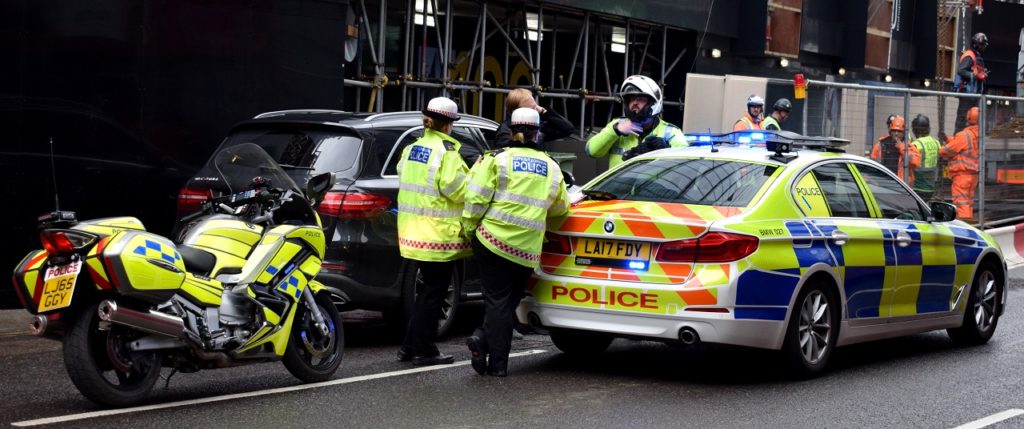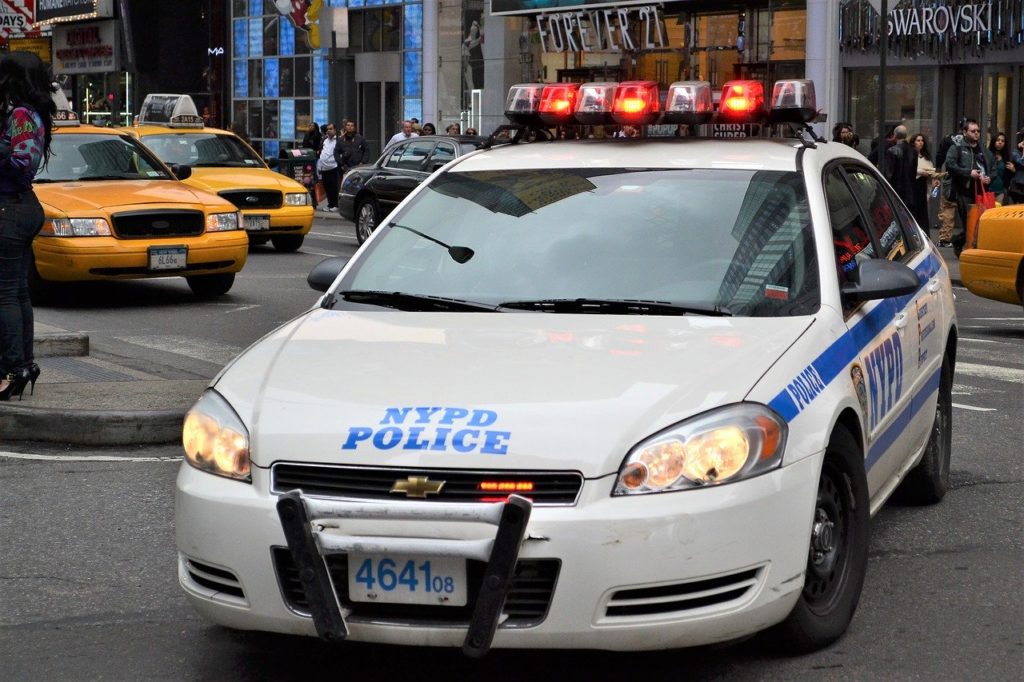To err is human, and at some point, in your driving life, you’re likely to make a mistake on the road that results in a traffic citation. It can be a confusing and frustrating experience that you would, quite frankly, rather avoid.
The fines associated with traffic offenses are no walk in the park either. They are designed to be punitive. Not to mention the points you’ll get on your driving record, which means paying higher premiums on your car’s auto insurance policy.
Knowing when and how to fight a traffic ticket is, therefore, crucial to increase your odds of a judge tossing out your ticket entirely. Here’s everything you need to know about the process.
When to Fight a Traffic Ticket
If you get a traffic camera ticket after running through a red light, you need to think about how you intend to deal with it. Is it better to simply pay the fine and move on or fight it in court?
In some states, it is mandatory to attend the court arraignment. In other states, offenders can skip the whole court process and just pay the citation within a prescribed time limit. Payment can be made online, by mail or at the courthouse.
The disadvantage of doing this, however, is that paying the fine suffices as an admission of guilt. This is subject to paying the maximum fine as per the rules that govern that particular violation.
So, if you want to fight a traffic ticket and increase your odds of getting it dismissed or perhaps minimizing the amount you have to pay in fines, going to court guarantees you the best possible outcome, either way, you slice it. Get a top traffic ticket lawyer in your jurisdiction and let them represent you in court.

If you’re in Texas, a quick search online for “traffic ticket lawyer Houston” or “CDL ticket lawyer Houston” will yield some of the most experienced traffic ticket attorneys in the area.
How Long Do Traffic Tickets Stay on Your Record
Different states have different time limits, but the average time is three years. Every traffic violation has an associated set of points attached to it. Houston traffic tickets, for instance, have either two or three points attached depending on the nature of the violation in question.
Any in-state or out-of-state traffic conviction earns you two points. Any in-state or out-of-state conviction that involves a crash earns you three points on your driving record.
These remain there for a total of three years from the date you were convicted. Having any number of points on your driving record – even just two negatively impacts the insurance premiums you’re required to pay.
The CDL traffic violation points allocation system is more stringent since commercial driver’s license-holders (CDL) are held to a much higher standard. Drivers in this category earn:
- 10 points for exceeding the speed limit by 15 mph or committing a violation in a construction zone
- Seven points for going 11-14 mph above the legal speed limit
- Four points for going 6-10 mph above the legal speed limit
Unfortunately, a CDL traffic ticket is more than an unwanted inconvenience in traffic court. It has a direct impact on your employment status.
You, therefore, need the best CDL traffic ticket lawyer to represent you in court if your license falls in this category. A CDL lawyer understands all the specialty permits and licenses drivers have to adhere to and knows all too well the risks that commercial drivers have to contend with daily.
How to Fight a Traffic Ticket
If you’ve been cited for a traffic violation, the best course of action to take would be to fight it in court. Here are six proven strategies you can use to get your ticket dismissed by the courts.
1. Challenge the Police’s Officer’s Judgment Call
One of the most common reasons why police officers often cite motorists is for driving in a manner that would be deemed unsafe or making dangerous turns on the road. In most cases, these situations require the officer to make a personal judgment on the way you’re driving and justify their reason for citing you.

For instance, suppose a police officer cited you for what they considered to be an unsafe lane change. When you show up to traffic-ticket court, you can argue that your decision to change lanes was safe given the weather conditions that were present on that specific day.
You can take your argument a notch higher by explaining to the court that when the alleged lane change took place, the officer in question was in the car ahead of you and was most likely paying more attention to the road ahead than to the vehicles changing lanes behind them. It is entirely likely that they were not in a position to make a subjective conclusion about the events that unfolded.
In some states, law enforcement officers can issue traffic tickets based on their personal opinion on whether the motorist is driving at a safe and acceptable speed. In these cases, the speed limit of the area in question isn’t clearly defined in the law.
So, a driver might argue that they are at liberty to use their discretion to determine what would constitute a “safe speed” given the traffic conditions and other factors at play. You can argue that you were, in fact, driving at a reasonable speed, certainly not a level worth getting cited for.
If you’ve received a speeding ticket for going above the speed limit, say doing 70 mph in a 60 mph zone you can argue that all the other cars in your lane were also traveling at 70 mph. So, moving any slower would have been hazardous to you and the other drivers as well.
2. Challenge the Officer’s Evidence
There are certain types of traffic tickets where it becomes difficult for the offending driver to question the judgment call made by the officer at the time of the citation. For instance, if you’re cited for making an illegal U-turn or running through a stop sign, it isn’t about an officer’s personal opinion since it’s a clear-cut traffic violation.
When fighting a traffic ticket of this kind, you have to take a different approach, and the validity of your argument ultimately boils down to whether or not the judge believes you. You have a high burden of proof to dispute the evidence presented by the officer.
One way to challenge the ticket would be to call into question whether or not the officer saw you commit the ticketed violation. Here are a couple of ways you can do this through your traffic ticket lawyer:
- Get eyewitness statements from passengers who were in the car with you at the time of the alleged traffic violation or roadside pedestrians who happened to be at the scene. The idea is for them to corroborate your story.
- Use diagrams or models to recreate the scene as you remember it. Show the respective position of your car and that of the officer. One possible scenario would be to show that the officer’s car was several blocks down the road, which would have made it impossible for them to see you commit the violation.
- Take photographs of the scene that you can use as evidence to prove that the conditions present at that time made it impossible for you to avoid the violation. For instance, if you ran through a stop sign because it was being obstructed by an overgrown hedge or tree limb, you can take photographs of the scene and present them in court as evidence.
3. Fight Traffic Ticket Citations Based on “Mistake of Fact”
Suppose that you were driving in the middle of two lanes along the highway, and you receive a citation for it. If you didn’t realize that you were doing so because the road markers were completely worn, you could challenge the ticket based on “mistake of fact.”
Another example would be getting cited for making an illegal right turn on a road that you don’t use too often. You later discover that the no-right-turn sign had been blown down the previous day, so you did not see it and, as a result, were not aware that it was illegal to make a right turn there. This constitutes “mistake of fact.”
In most state jurisdictions, a traffic court judge hearing your case is at liberty to form their conclusion about the validity of your traffic ticket based on the strength of the evidence you present before them.
So, a reasonable judge might listen to your argument, look at the evidence you present, and throw out the ticket if, under the circumstances, it was impossible to not to commit the offense. However, this doesn’t apply if the violation was committed as the direct result of your reckless driving.
4. Justify Your Actions
As they say, the fastest way to get from one point to another is through a straight line. So, rather than try to point out mistakes in the citation process or poke holes in the evidence presented by the police officer, you can admit to the traffic violation, but present facts that justify your actions at the time.
The idea is not to dispute the ticket but to instead paint a picture of the factors that compelled you to drive that way. For instance, imagine that you are a truck driver who was cited for changing lanes recklessly along the I-90.
Some of the top lawyers for truck drivers would argue that you had been working pretty long shifts and that you were suddenly hit by a dizzy spell. You, therefore, had to quickly pull over to avoid causing a crash.
Another example would be if you got ticketed for speeding on a highway. A traffic ticket attorney representing you in court could argue that you noticed the car ahead of you swerving dangerously. You had no choice but to speed up when passing them to avoid a collision. This line of defense, however, wouldn’t hold up too well if the officer proves that you continued speeding down the highway long after you had passed the motorist in question.
5. Let a Traffic Ticket Lawyer Fight Your Battles for You
When you’re trying to figure out how to fight a traffic ticket, no one ever tells you how crowded traffic court usually is. Whether or not you’re guilty of the violation, you’ll need to clear out your schedule and wait for hours on end before your case comes up for hearing.
Rather than spend an infinite amount of time there, why not let the professionals handle it? Hiring a lawyer not only saves you time, but it also increases your odds of getting the ticket dismissed or, at the very least, reduces the fines you’ll have to pay.
6. Enroll in Traffic School
Some states have traffic school as an option to prevent traffic violations from going into their driving records. Texas traffic tickets, as well as those from California and Florida, have that option.
So, if you’re in any one of these states and have committed a traffic offense, you can avoid high insurance rates in the future by enrolling in a defensive driving-school to take a safety course. The process isn’t automatic, though.
There are certain offenses for which traffic school isn’t allowed, and you can only enroll once every 12 months. So, if you commit the same offense multiple times in the year, you can only use traffic school as a defense strategy once in that year.
A motorist must first admit fault and, in some cases, also pay the citation fine before they can be considered eligible. Trucking lawyers, however, can’t use this as a defense strategy. CDL offenders in most states are usually denied the choice to attend traffic school to avoid getting points on their driving records.
Fight it Out in Court
Getting a traffic ticket doesn’t always mean that you deserved it. Fighting it in court is your best option and often pays off in the end. Consult with a regular or CDL ticket lawyer to device the best strategy to beat your ticket.
If you have more legal questions, you can also chat now with a Laws101.com attorney, where you’ll be instantly connected to a lawyer who can give you legal guidance on your specific case or question.
